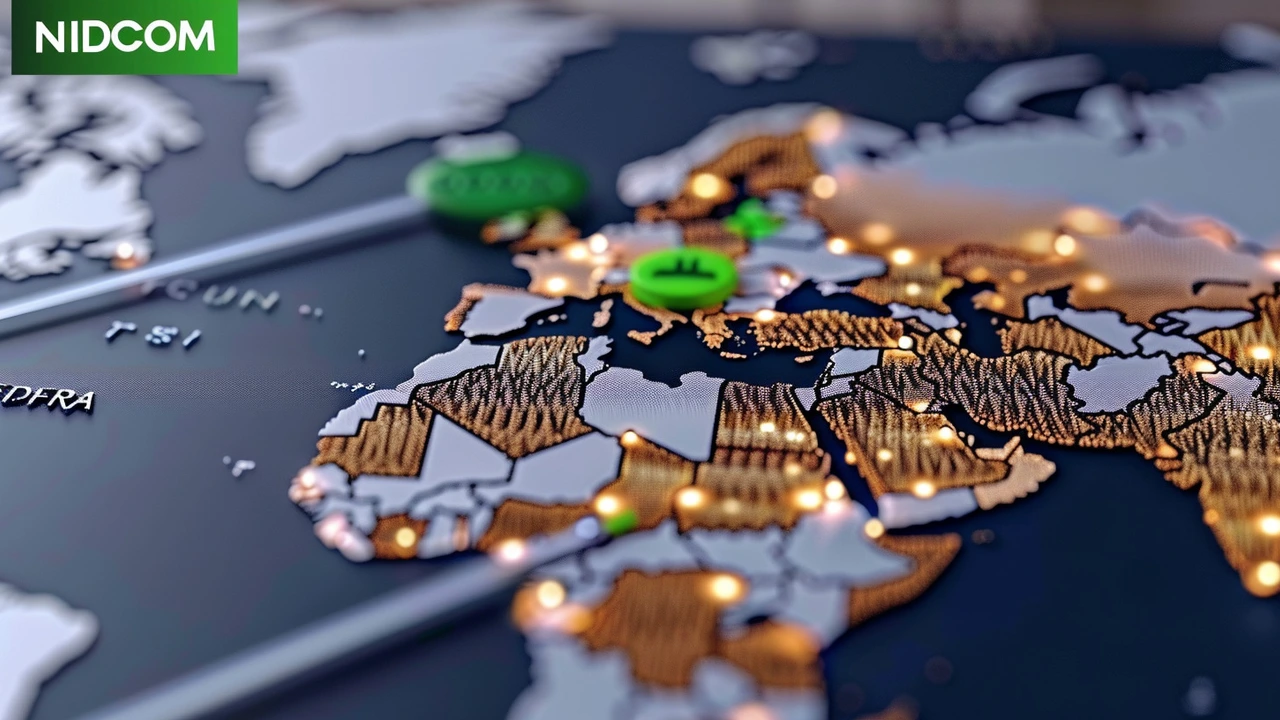NIDCOM Denounces Human Trafficking of Nigerians to Ghana: A Call for Vigilance and Action

Condemnation from NIDCOM Over Human Trafficking
The Nigerians in Diaspora Commission, under the leadership of its Chairperson and CEO, Abike Dabiri-Erewa, has publicly condemned the recent case of human trafficking involving ten Nigerian girls lured to Ghana under false pretenses. Described as modern-day slavery, this incident once again brings to light the harrowing realities faced by many individuals, particularly young women, who are trafficked across borders under the guise of promising employment opportunities. This time, the girls were deceitfully promised jobs as 'sales girls' but were stripped of their autonomy and subjected to exploitative conditions.
Dabiri-Erewa's firm censure follows the successful interception and rescue of these girls by the Nigerians in Diaspora Organisation (NIDO) in Ghana. The organization quickly alerted NIDCOM, leading to a prompt intervention and rescue operation. The chairperson emphasized the importance of vigilance and the need for a more permanent and stringent solution to eradicate human trafficking from Nigeria, calling upon parents to question and verify the whereabouts and safety of their children when they are taken away, even by trusted relatives or friends.
The Rescue Operation
During the rescue mission, several key figures from both Nigeria and Ghana were present to ensure a coordinated and effective intervention. Notably, the Acting Nigerian High Commissioner to Ghana, Ambassador Adeoye Ifedayo, alongside representatives of the Imo State Governor, Hope Uzodimma, were on the ground to lend support. This high-level delegation met with officials from the Ghanaian Police and other authorities who pledged their cooperation in fighting human trafficking together.
Furthermore, the Eze Igbo of Ghana, Chukwudi Ihenetu, and Chief Calistus Elozieuewa, Chairman of the Board of Trustees (BOT) of NIDCOM in Ghana, were also part of the efforts, showcasing a united front spanning multiple organizations and individuals dedicated to the cause. Their collaboration highlighted the critical nature of cross-border partnerships in addressing such human rights violations effectively.

The Path to Healing and Rehabilitation
Following their rescue, the ten Nigerian girls were handed over to the National Agency for the Prohibition of Trafficking in Persons (NAPTIP) for thorough counseling and rehabilitation. NAPTIP's role is crucial, as it offers a safe space and a structured rehabilitation process for the victims, ensuring that they receive the necessary psychological, medical, and social support to reintegrate into society and rebuild their lives.
Moreover, the Governor of Plateau State has pledged to oversee the comprehensive welfare and rehabilitation of the rescued girls, committing resources and support to ensure they are cared for and capable of leading fulfilling lives post-rescue. This pledge of support is integral, as human trafficking survivors often face prolonged periods of trauma and require sustained assistance to heal and regain their autonomy.
The Broader Fight Against Human Trafficking
This incident serves as a stark reminder of the persistent and insidious nature of human trafficking, which continues to plague many communities worldwide. It underscores the need for constant vigilance, robust legal frameworks, and international cooperation. Traffickers often exploit economic vulnerabilities and societal loopholes, making it imperative for governments, civil societies, and international bodies to collaborate and combat these networks comprehensively.
One of the critical points raised by Dabiri-Erewa was the role of education and awareness in preventing trafficking. Empowering communities with knowledge about the dangers and signs of trafficking can significantly reduce the likelihood of individuals falling prey to such deceptions. It's also essential for parents and guardians to maintain open lines of communication with their children, fostering environments where young people feel safe to disclose their whereabouts and any suspicious opportunities they encounter.

A Call to Action
Ultimately, the rescue of these ten girls is just one step in a much larger battle against human trafficking. It calls for an unwavering commitment from all stakeholders involved to protect the vulnerable, support survivors, and dismantle trafficking networks. Organizations like NIDCOM and NAPTIP, along with the collaboration of international partners, remain at the forefront of this fight, ensuring that no person is subjected to such inhuman treatment.
The recent events also call on every individual to play their part by staying informed, reporting suspicious activities, and advocating for the rights of trafficking victims. The global community must look towards sustainable and inclusive strategies that address the root causes of trafficking while providing comprehensive support systems for those affected.
As we await further measures and outcomes from this recent rescue, one thing remains clear: the fight against human trafficking is far from over. It requires a collective effort, encompassing legal action, societal vigilance, and a profound commitment to human rights. Only then can we hope to build a world where every person is free from exploitation and able to live with dignity and freedom.